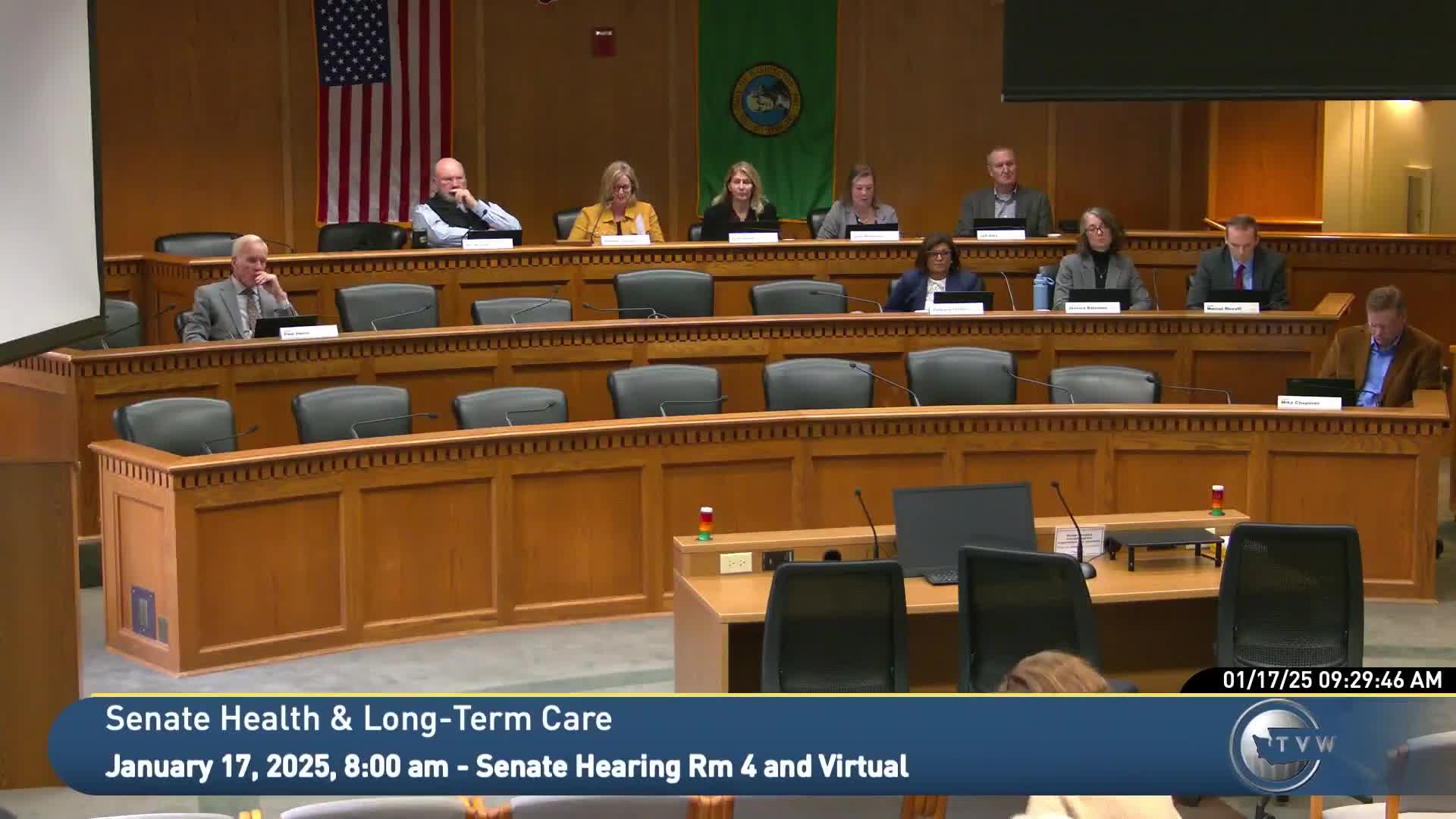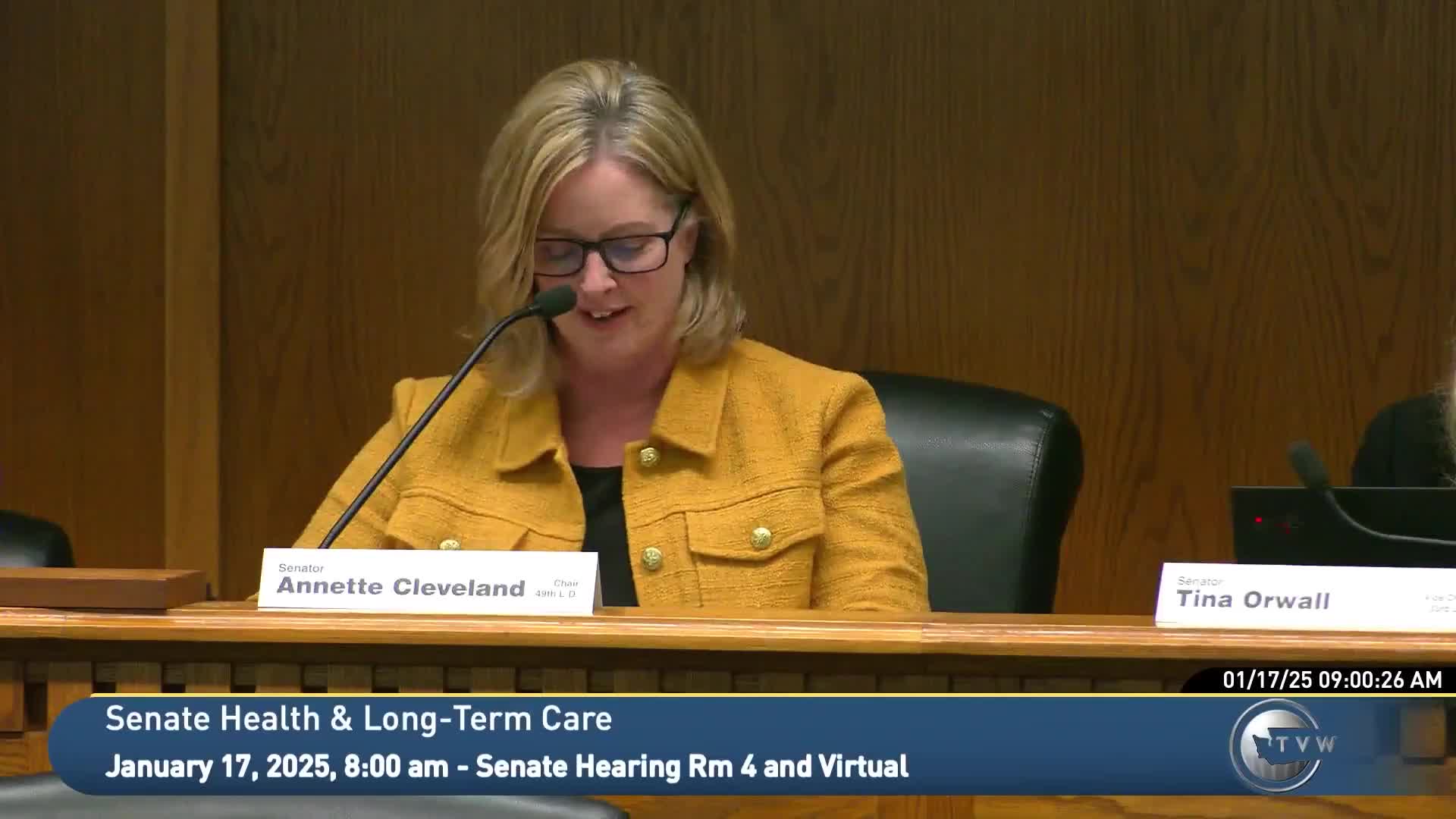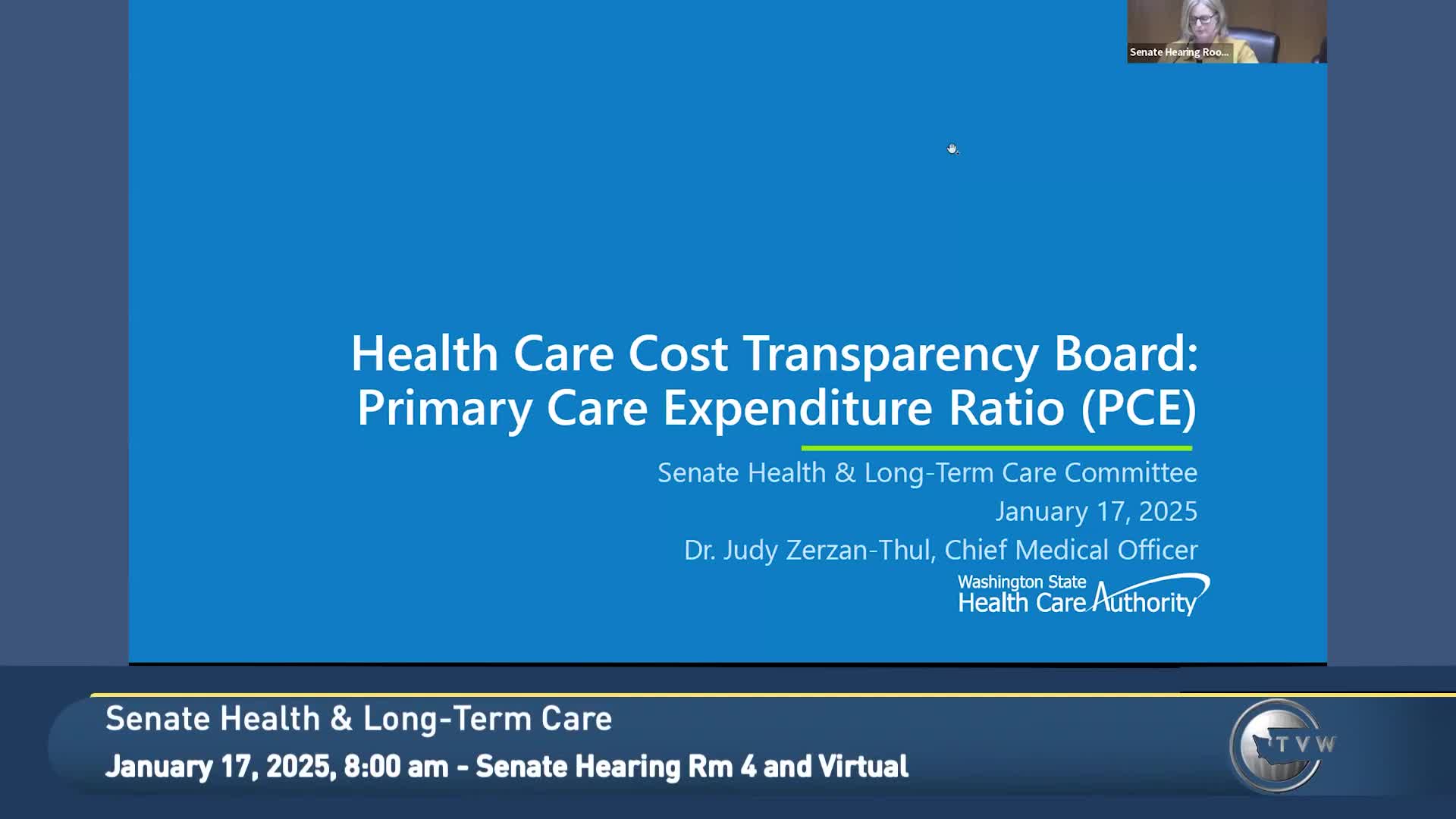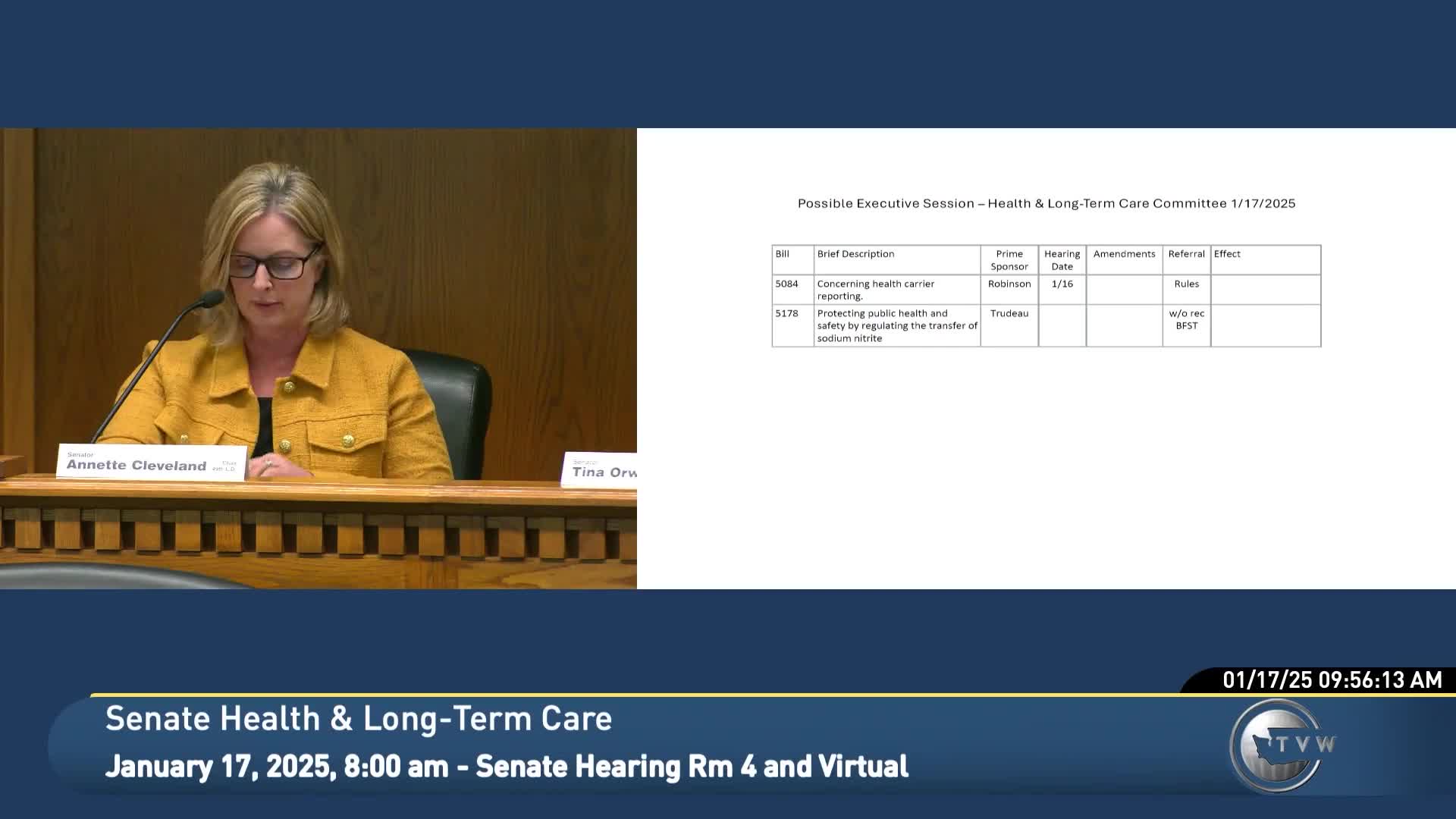Article not found
This article is no longer available. But don't worry—we've gathered other articles that discuss the same topic.

Adult family homes and nursing providers cite rapid demand growth, bed‑hold gaps and workforce pressure

Hospitals warn of thin reserves, high occupancy and discharge bottlenecks

Washington lawmakers hear plan to boost primary care spending, shift payment toward team-based care

